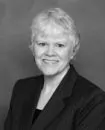Seyfarth Summary: On July 12, 2018, the California Supreme Court agreed to address questions posed by the Ninth Circuit about whether California Labor Code provisions apply to an out-of-state employer whose employees work part of their time in California. Nationwide employers with employees jetting in to work temporarily in California need to return their seats to an upright position and follow this developing story.
Is your business flying high in the current economy? Profits reaching new altitudes? Maybe you have employees residing in one state while working in another. If some work occasionally in California, prepare to fasten your seatbelts for a potentially rough landing. Even if your employees work in California only intermittently (think partial days), and even if your company is not headquartered in the Golden State, the California Supreme Court may soon bring you down to earth.
Background
Traditionally, employers in paying their employees have applied the wage and hour law of the state where the employee sides or most often works, even if the employee occasionally works in another state. In California, however, the rules are peculiar.
In a 2011 decision, Sullivan v. Oracle, the California Supreme Court held that non-California residents working in California for a California-based employer were subject to California daily overtime laws if they performed their in-state work for whole days. Oracle left employers up in the air as to whether California law would apply in other contexts, such as (a) when non-California residents work partial days of work in California, (b) when the employees worked for non-California based employers, or (c) when the wage and hour provisions at issue were something other than the cal-peculiar rules on daily overtime.
The Certified Questions
Which brings us to the current Ninth Circuit cases. Specifically, in three airline cases raising California issues in federal court (two cases against United Airlines, one against Delta), the Ninth Circuit requested the California Supreme Court to address five questions, paraphrased below:
(1) Does the federal Railway Labor Act exemption found in Wage Order 9 bar a wage-statement claim (Labor Code § 226) by an employee who is covered by a collective bargaining agreement?
(2) Does Section 226 apply to wage statements that an out-of-state employer provides to an employee who resides in California, who receives pay in California, and who pays California income tax on her wages, but who does not work principally in California?
(3) Does Section 226 and Labor Code § 204 (governing timely wage payments to current employees) apply to payments that an out-of-state employer makes to an employee who, in the relevant period, works in California only episodically and for less than a day at a time?
(4) Does California minimum wage law apply to out-of-state employers for the California work that their employees perform in California only episodically and for less than a day at a time?
(5) Does California's peculiar rule preventing pay-averaging for employees paid by commission or piece rate apply to a pay formula that generally awards credit for all hours on duty, but that does not always award pay credit for all hours on duty?
In the underlying lawsuits, United pilots and Delta flight attendants claim that the airlines violated California Labor Code provisions on wage statements, minimum wage, and the timing and completeness of wage payments. United (based in Chicago) and Delta (based in Atlanta) both won at the district court level, successfully arguing that de minimis work within California does not trigger California law, especially when (i) the employers are not based in California, (ii) the employees work only limited amounts of time in the state, and (iii) the employees mostly work in federal air space and in multiple jurisdictions during a single pay period or even a single day.
Why Does This Matter to Employers Based Outside California?
The guidance that the California Supreme Court will issue may ensnare non-California employers in a complex web of Labor Code laws for employees who work in California only sporadically, or who merely stop in California on their way to other work locations. It remains to be seen whether the Supreme Court will stretch to apply California's peculiar rules on wage statements, daily overtime, and minimum wage to such transitory California work. Or whether California rules on meal and rest beaks, or paid sick time, might also be implicated.
Based on recent emanations from our high court, we would not be surprised to see another extension of California's employee-protective laws. Any such extension would be highly problematic in light of California's robust civil and statutory penalties for Labor Code violations. The state's Private Attorneys General Act authorizes penalty lawsuits brought on a representative basis on behalf of all "aggrieved employees or former employees." While we do not predict that California will attempt to regulate employment of individuals who merely fly through California airspace, all employers with employees having feet on the ground in California need to sit up, return their tray tables to their original position, and be alert to these pending decisions.
Workplace Solution: The California Supreme Court's opinion regarding the certified questions will not come down for many months. In the meanwhile, sit back, enjoy the flight, and watch this space for further developments. Feel free to contact your favorite Seyfarth attorney if you would like to discuss.
The content of this article is intended to provide a general guide to the subject matter. Specialist advice should be sought about your specific circumstances.


